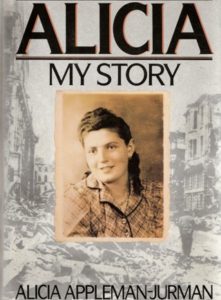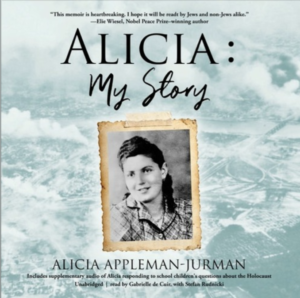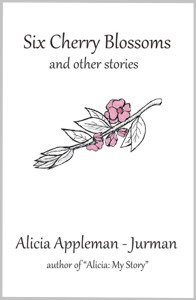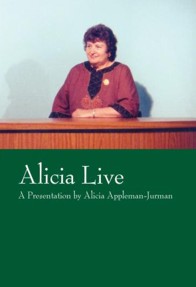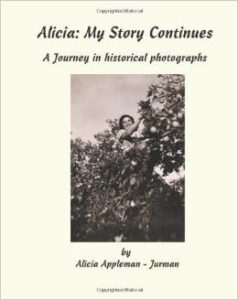Many books have been written about the tragic events which took place during the Second World War in those parts of Europe that were occupied by Germany and governed by adherents of the Nazi party and their collaborators. If Alicia was simply another of these, it would still serve a purpose, for it is important that the world not be permitted to forget the depths to which presumably civilized nations can sink.
Alicia Appleman-Jurman writes of her own experiences as a very young girl. A child of eleven when the Germans first entered her city in eastern Poland and she lost her father. A girl of fifteen, orphaned and alone when Germany was finally defeated. She writes of the post-war years, of her work with other orphans and as a guide to survivors who had to be smuggled out of Eastern Europe. Finally, after a stay in a Russian prison, a serious illness, convalescence at a United Nations refugee camp and later a Jewish Agency school, at the age of seventeen, she dared the Mediterranean Sea and the British Navy to reach the shores of Israel.
Alicia writes of those years as she saw them… through the naive eyes of a child initially; later through the somewhat street-wise eyes of an adolescent, forced to mature before her time. It would have been simpler to write only of her own experience, set against a background of faceless oppressors and horror. But Alicia also writes of the environment in which she found herself. The villagers come alive and there are remarkable insights into the thinking and motivations of the non-Jews, who while themselves allowed to live almost normally under German rule, saw the destruction of their Jewish countrymen and neighbors. Many collaborated with the Germans, very few protested. There were rationalizations; most turned away, yet some would show kindness to ragged Alicia who pretended to be one of them and worked in their fields. One even risked his life to give her shelter.
Alicia is an autobiography that reads like a novel. It is not a story about concentration camps, but tells of people who fought to survive through the war years and who did their best to resist, virtually alone. Because life is painted on a many-colored canvas, Alicia also writes with a wry humor… there may he tears mixed with the reader’s laughter at Alicia’s adventures with Sophie, the cow, and the description of her calendar shorts, which became shorter each day her ship sailed to Haifa.
Those who remained alive after the German defeat did not live happily forever after. The immediate post-war years were difficult for everyone, but particularly hard for Jews. Very few cared about them and they had to find a way to survive among people, many of whom had helped the Nazis and who now occupied formerly Jewish owned homes and property. Alicia tells of these times, and perhaps there are also lessons for all of us in those experiences.
In spite of her hardships, Alicia retained her belief in God. It was easy to feel that God, if he existed, would not permit the cruelty and horrors she saw all about her. Yet perhaps the most poignant words in the book are those Alicia used to answer a little boy’s question:
“Alicia, do you think there is a God? Do you really think there is one?” Danny asked in a pleading voice. “Please tell me if there is a God. I have to know.”
There was an urgency in his question
Many times I had heard adults say, if there is a God, how can he silent at our cries of anguish? How come he doesn’t punish murderers?”
When I heard people say that, Danny dear, do you know what I thought? I thought that God was ashamed of the people on this earth and was shocked by what they were doing to one another, but that he couldn’t do anything to help us.
“But look, do you see those raindrops? They could be tears falling from the skies. Maybe God is crying with us, for he has lost so many people he also loved. I don’t know whether you should believe in God or not. You will have to decide for yourself. But everyone should believe in something or somebody, and right now, the way I see it, God needs us to believe in him. He is alone as we are, and as lost as we are. Somehow we will have to prove to Him that people aren’t all evil, that they are capable of love, love of one another and love of Him; unconditional love.”
So this, too, is “Alicia”. A story of love.
This review of “Alicia My Story” was written by my husband Gabriel Appleman – may his memory be blessed
